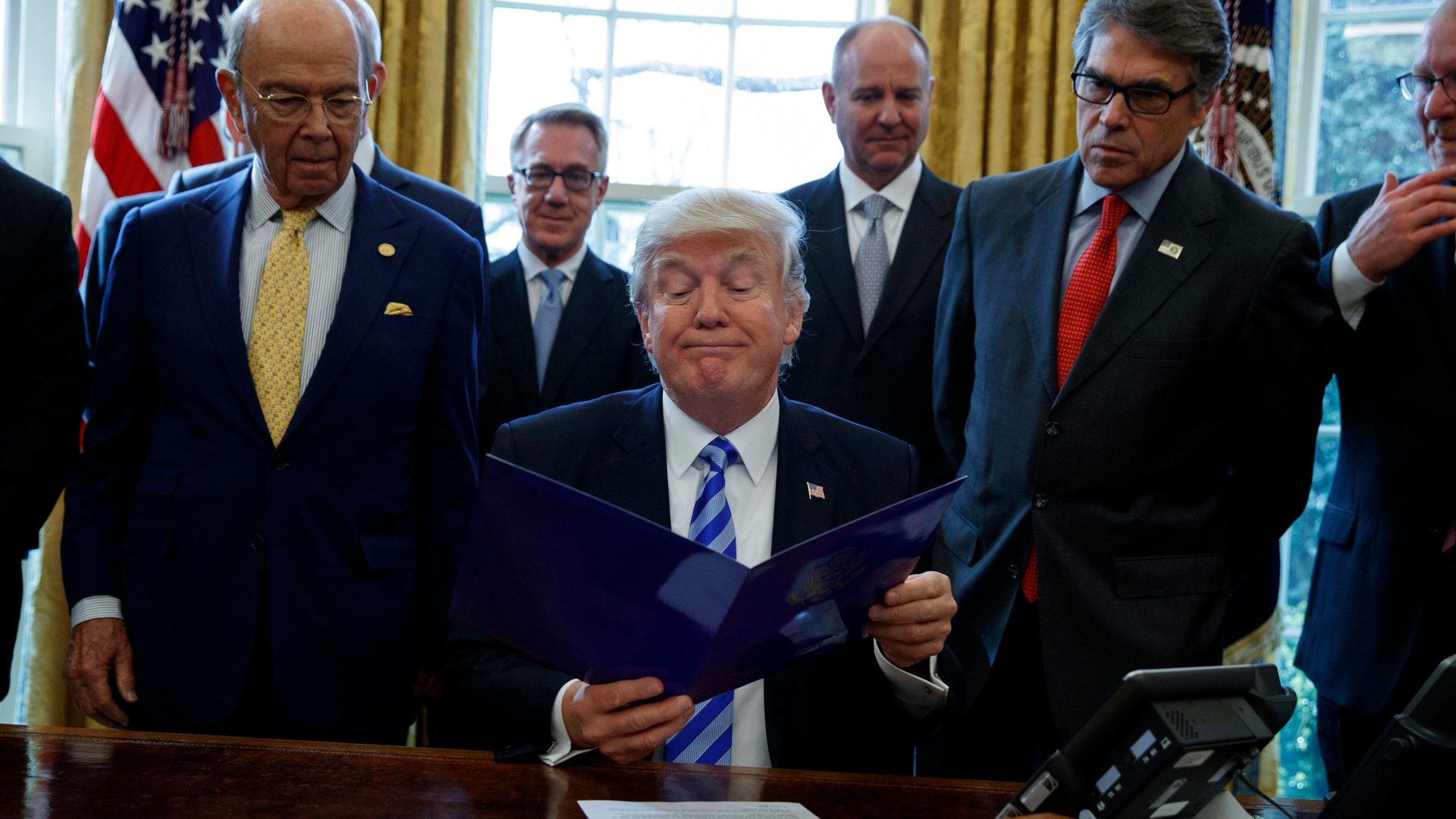Republicans say they’re on to tax reform. It’s going to be much harder than health care
“I would say that we will probably start going very, very strongly for the big tax cuts and tax reform,” president Donald Trump said after his party’s health-care bill collapsed on itself at the end of last week.


“I would say that we will probably start going very, very strongly for the big tax cuts and tax reform,” president Donald Trump said after his party’s health-care bill collapsed on itself at the end of last week.
After all, if there is anything that Republicans agree upon, it’s the need for lower taxes. But that party-wide consensus is as deceptive as the once-firm conviction that Obamacare must be repealed. Tax reform is as much of a white whale as any major government overhaul, and for many of the same reasons:
You need a plan
The Republicans haven’t agreed upon one yet, but they need a path to how they will lower taxes without gutting public revenue entirely. One approach is the classic tax-base broadening, rate-lowering combo where deductions or loopholes are eliminated, and overall tax rates lower. Economists and businesses say this creates a more efficient system and spurs economic growth. The problem is that people and businesses love their tax breaks, and Republicans and Democrats could never agree about how much revenue to raise and how to treat global corporations.
When it comes to business taxes, some House Republicans are pushing for a destination-based cash-flow tax with border adjustments, an attempt to liberate multinationals from global taxes while also giving them new reason to invest in the US. That plan, however, is controversial, because it depends on an assumption that the dollar will strengthen significantly, and has attracted the ire of companies that import raw materials, including traditional GOP constituents like oil refiners. Republicans will need to pick a direction, and they won’t be able to do this in anything like the 17-day window they used for health care.
You need a coalition
In the wake of the American Health Care Act’s collapse, the blame game is in full effect, both within the Republican party and outside it. Trump’s attacks on his own party’s key factions and failure to bring them around to his health-care bill don’t suggest that he’s going to bring together a coalition of lawmakers behind any sort of tax plan. Nor does the vote-counting ability of the current Republican leadership.
You need to pick off stakeholders
One of the most incredible things about the Republican health-care bill was that it won over none of the interests involved in the health-care business. Compare that to the Democrats’ efforts on Obamacare to diligently win over hospitals, insurers and even drugmakers with a deal: You drop your costs, we’ll provide you more customers. This bargain hasn’t always worked out as well as either side hoped, but it resulted in a law being enacted and insurance coverage expanded. On tax reform, depending on what direction the GOP decides to go, it will be important to get some powerful interests behind the bill. But the challenge of doing so is the same challenge as many government reforms: The benefits are far more diffuse than the costs, which means those protecting the status quo will have an easier go of it. Consider a choice to close a $318-million tax loophole and give every American a $1 tax refund. Which side will fight harder for their favored outcome?
You need better politics
While taxes are a perennial source of complaint, they rarely crack the top list of issues motivating voters. Indeed, most Americans favor higher taxes on the wealthy, not lower. Democrats will have a field day pointing out how much money Trump and his cabinet of billionaires will save from the GOP’s proposed tax plans compared to the average American, even as he proposes budget cuts. The plan to repeal the estate tax will be called something like the ‘Ivanka Intervention.’
As important, without repealing the Affordable Care Act, Republicans will find it difficult to pass a major tax cut without winning over a few Democratic votes in the senate to avoid a filibuster. While hardly impossible, it would likely require curtailing the size of the cuts and offering something, likely infrastructure investment, in return—a move that might anger the Republican right-wing. There’s a reason that the last tax reform, under President Ronald Reagan in 1986, was bipartisan, and the closest the US has come to repeating the feat in recent years was a grand bargain nearly struck between president Obama and House speaker John Boehner in 2011.